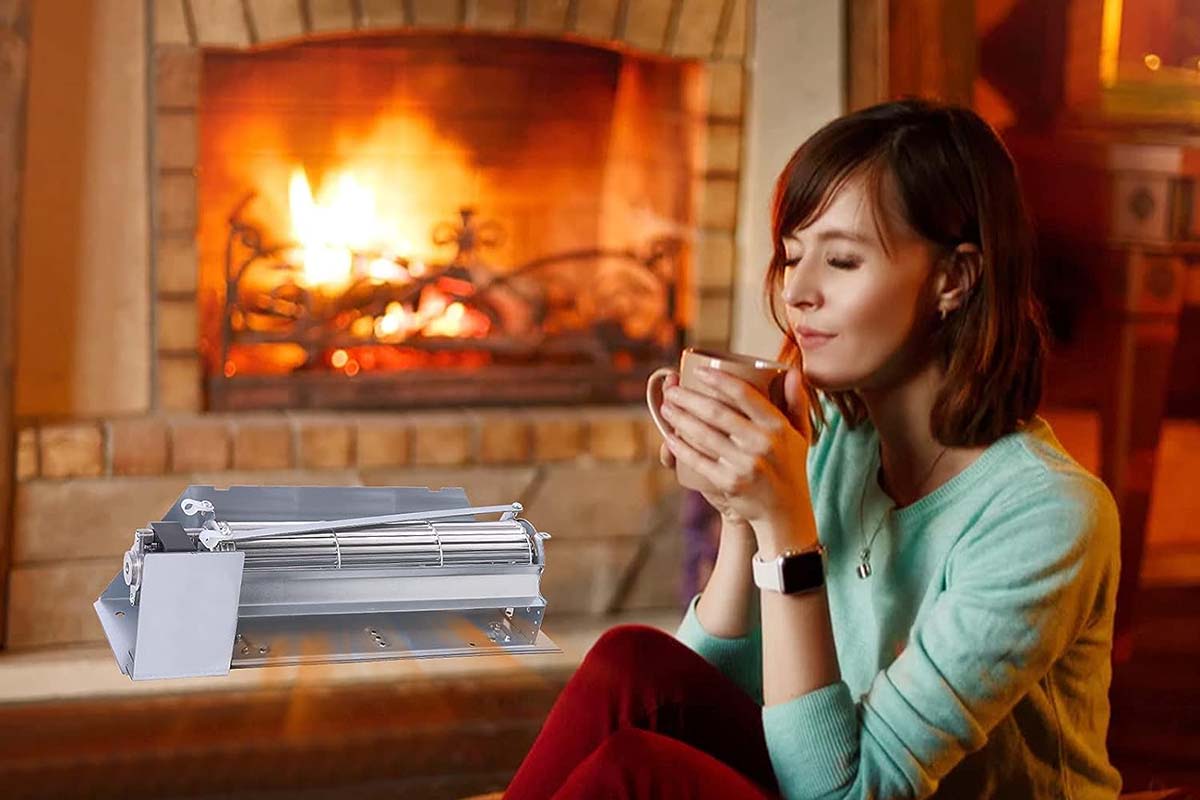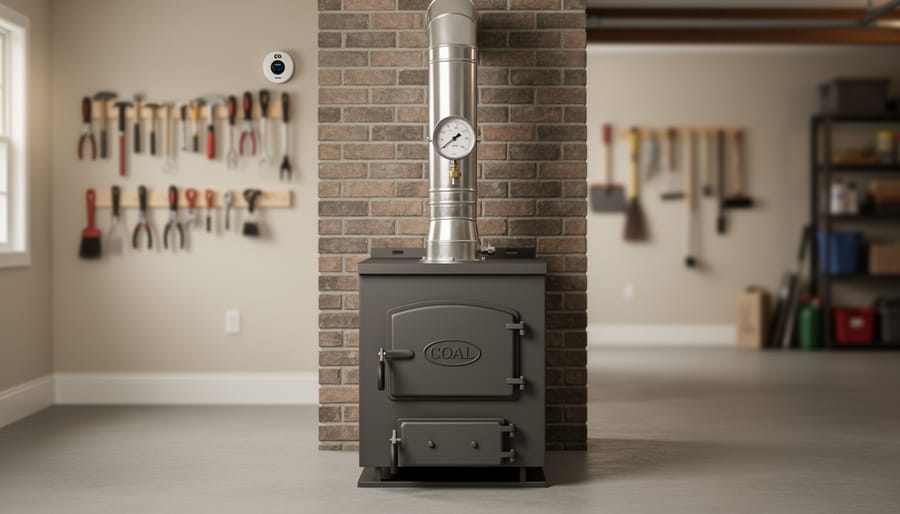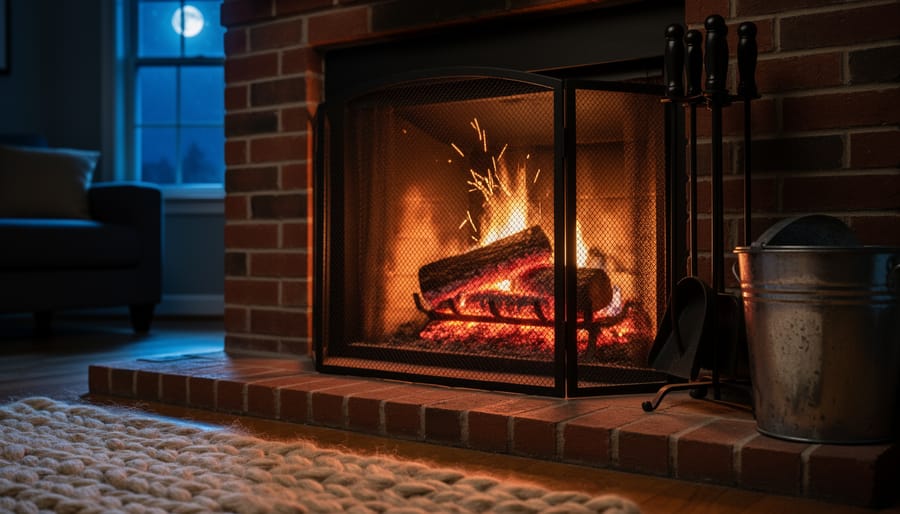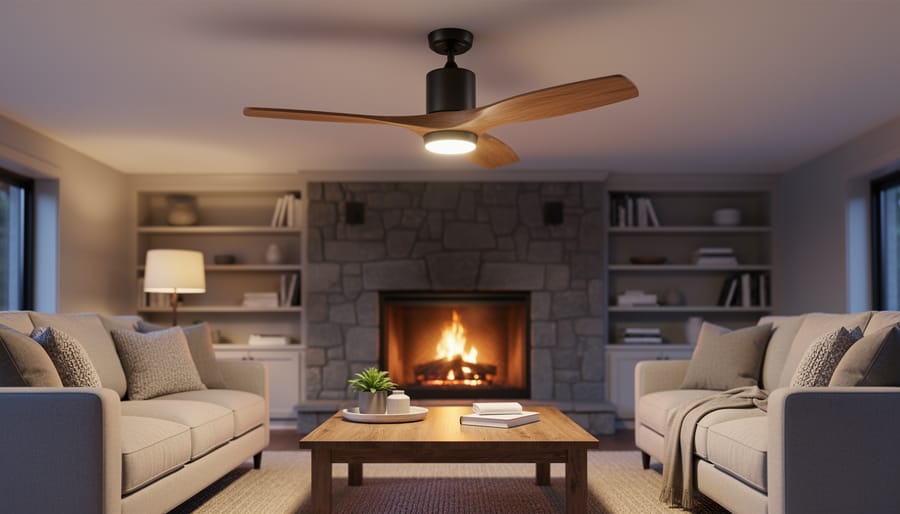Gas fireplaces have become a popular heating option for many homeowners, offering both warmth and ambiance to living spaces. As you explore the world of gas fireplaces, you may encounter the debate surrounding the use of a fireplace blower.
In this article, we will delve into the comparison between gas fireplaces with blowers and those without, helping you make an informed decision about which option is best for your heating needs.
The Basics of Gas Fireplaces
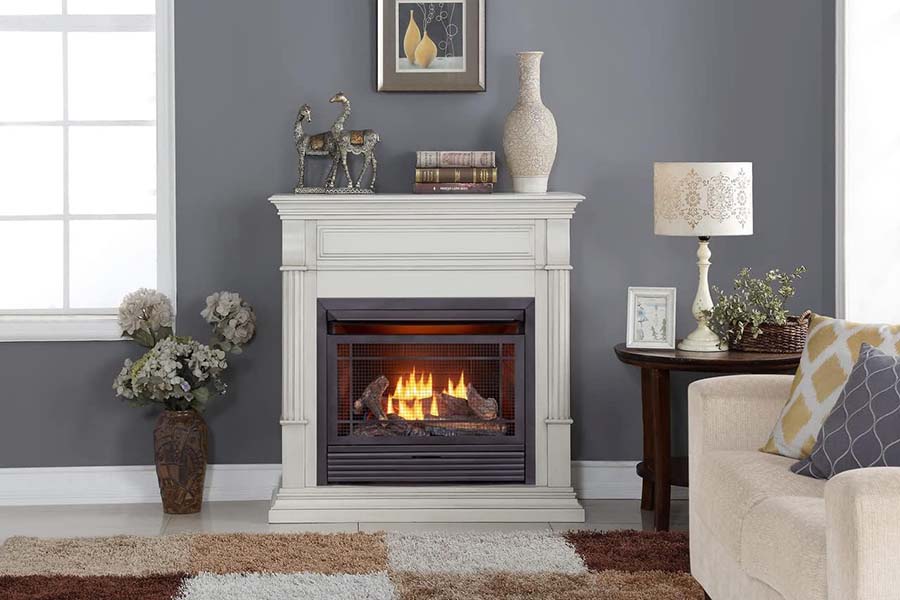
Gas fireplaces operate by burning natural gas or propane to create a comforting flame that radiates warmth. These fireplaces offer several benefits, including multi function remote control, efficiency of convective heat, convenience during power outage, and minimal smoke production.
However, to make the most of their heating capabilities, many homeowners opt to use a fireplace blower.
The Function of a Fireplace Blower
A fireplace blower fan, also known as a circulator fan or fireplace fan, is an accessory designed to enhance the heating efficiency of gas fireplaces.
This ingenious device works by using air flow and increasing the circulation of warm air throughout the room, ensuring a more even and widespread distribution of heat.
Operating a Gas Fireplace Without a Blower
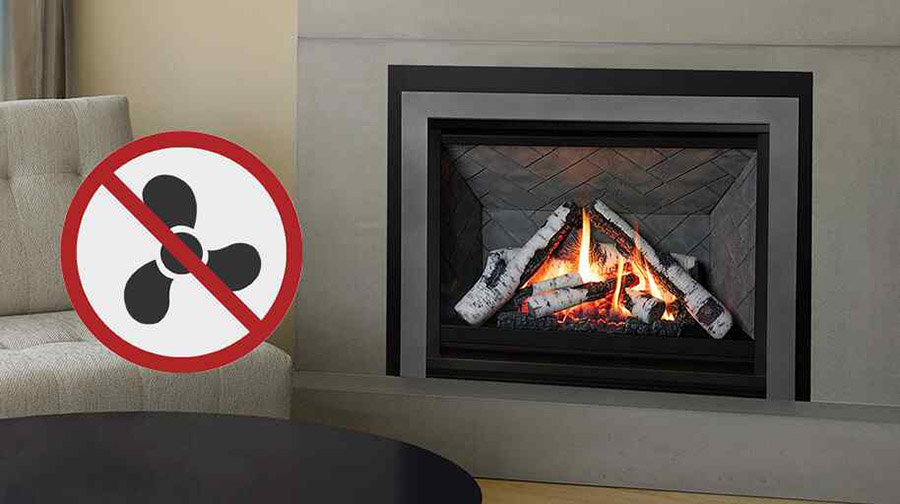
While fireplace blowers offer advantages to many gas fireplaces, some gas fireplaces are designed to function without one. Operating a gas fireplace without a blower is possible, but it’s essential to understand the implications.
Can You Use a Gas Fireplace Without a Blower?
Gas fireplaces without a blower still provide hot air through radiant heat transfer and natural convection. The heat circulation generated by the fireplace radiates into the room is essential for creating a comfortable environment in a large room.
Understanding the Impact on Heat Distribution
Without a blower fan, the radiant heat distribution might be less even, with cooler or warmer areas closer to the fireplace receiving more warmth than those further away. The lack of forced air circulation can result in some parts of the room feeling colder.
Comparing Warm Air Circulation With and Without a Blower
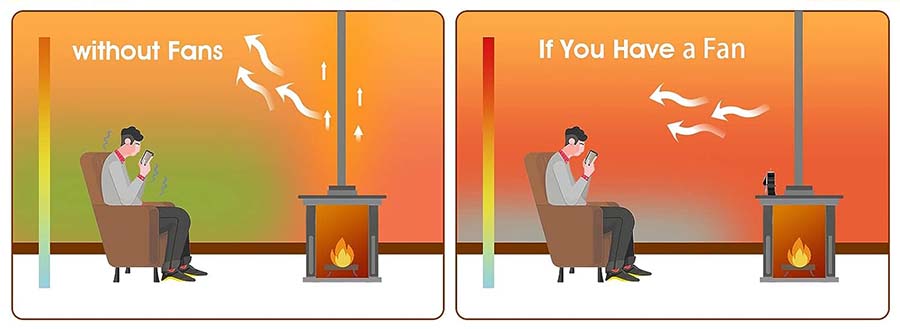
A gas fireplace with a blower fan will disperse warm air more efficiently throughout the room, ensuring consistent heating across all areas.
In contrast, heated air from a fireplace without a blower relies on natural convection, which may take longer to achieve the same temperature flow and desired warmth.
Pros and Cons of Gas Fireplace Blowers
Pros:
- Enhanced Heating Efficiency: A blower improves the fireplace’s efficiency by circulating warm air, reducing heating times, and maximizing heat output.
- Better Warmth Distribution: The even distribution of warm air ensures that all parts of the room experience a comfortable level of heat.
- Increased Energy Savings: By improving efficiency and heat distribution, a blower can lead to potential energy savings.
Cons:
- Noise: Some fireplace blowers can produce noise during operation, which may be a concern for noise-sensitive individuals.
- Initial Investment: The cost of purchasing and installing a blower is an upfront investment to consider.
Addressing Concerns About Noise
The noise levels of gas fireplace blowers can vary between models. High-quality gas insert blowers are designed to minimize noise, making them a suitable option for quieter heating.
In the following sections, we will explore the installation process, maintenance requirements, and factors to consider before deciding between a gas fireplace with a blower installed, or without one.
Additionally, we’ll compare gas and wood fireplace blowers and discuss blowers for electric fireplaces.
Installing a Fireplace Blower Kit
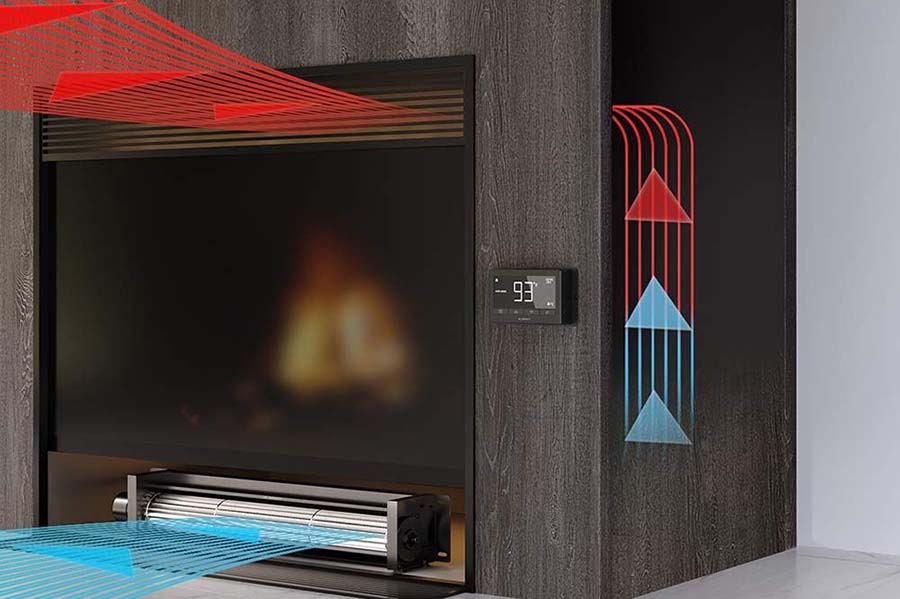
If you decide to enhance the heating efficiency of your gas fireplace, you can consider installing a fireplace blower kit. Here’s what you need to know about this process:
Will My Fireplace Accept a Blower Kit?
Before proceeding with the installation, check whether your gas fireplace is compatible with a blower kit. Some gas fireplace models are designed to accommodate blowers, while others may not have the necessary space or pre-drilled holes for installation.
Which Blower Kit Should I Use?
When selecting a blower kit, make sure to choose one that is specifically designed for your gas fireplace model. Each kit may have different specifications and requirements, so it’s essential to match the blower to your fireplace for optimal performance.
The Installation Process Explained
Installing a blower kit may vary depending on the specific model and manufacturer. Generally, the blower fans process involves:
- Preparing the Fireplace: Ensure the gas fireplace is turned off and cool to the touch before beginning the installation process. Follow the manufacturer’s instructions for removing any necessary components or panels to access the installation area.
- Mounting the Blower: Secure the blower in the designated location inside the fireplace. Attach the blower securely according to the instructions provided with the kit.
- Wiring and Power Source: Connect the blower to a power source, either by plugging it into an electrical outlet or hardwiring it into the fireplace’s electrical system. Be sure to follow safety guidelines and consult a professional if necessary.
- Testing: Once the blower is installed and connected, test it to ensure it operates correctly. Listen for any unusual noises or vibrations that might indicate improper installation.
Cost Considerations for Adding a Blower
When considering a blower for your gas fireplace, it’s essential to weigh the cost of the blower kit against its potential benefits.
The initial investment for the blower and installation may vary depending on the brand and model, but the improved heating efficiency and potential energy savings could make it a worthwhile long-term investment.
Maintenance and Lifespan of Blowers
To keep your blower functioning optimally, regular maintenance is essential. Here are some maintenance tips and information about the lifespan of fireplace blowers:
How Long Do Blowers Last and How Should They Be Maintained?
On average, well-maintained fireplace blowers can last for several years. The lifespan may vary depending on usage, quality, and maintenance practices.
Routine maintenance includes cleaning the blower and its components, checking for dust buildup, and ensuring proper lubrication of moving parts.
Troubleshooting Common Blower Issues
If your blower experiences any performance issues, troubleshooting can help identify and resolve the problem. Common blower issues include motor problems, loose connections, or obstructions in the vent system.
Always refer to the manufacturer’s guidelines for troubleshooting or seek professional assistance if needed.
Gas Fireplace Blower vs Wood Fireplace Blower
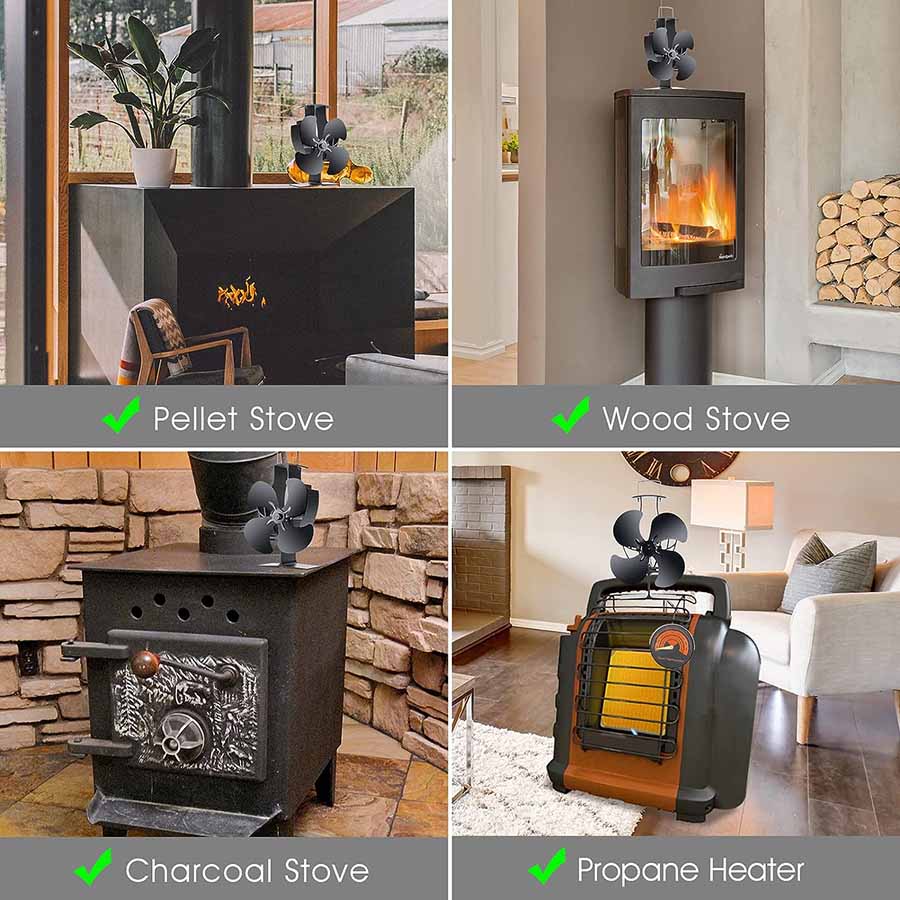
While we’ve primarily focused on gas fireplace blowers, it’s essential to mention that similar blower systems are available for wood-burning fireplaces.
The function of a wood fireplace blower is similar, aiming to enhance heat distribution and improve overall heating efficiency of wood burning insert.
Factors to Consider When Choosing a Blower for Each Type
When deciding whether to add a blower to a gas or wood fireplace, consider the following factors:
- Fireplace Size: The size of your fireplace and the room it heats will impact the blower’s effectiveness. Larger fireplaces and rooms may benefit more from using a blower.
- Heating Needs: Consider how much additional heating power you require and whether the current heat distribution is satisfactory without a blower.
Blowers for Electric Fireplaces
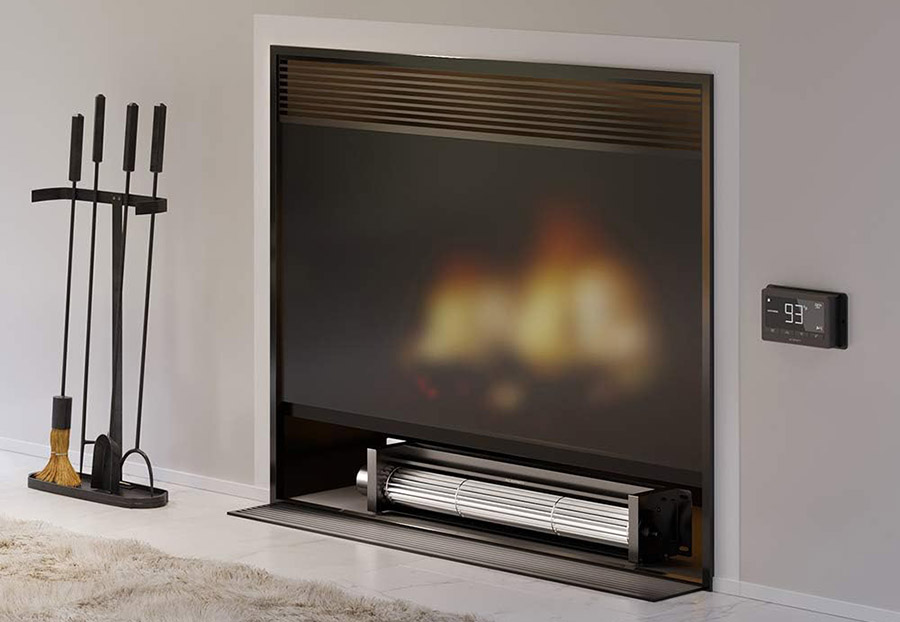
Electric fireplaces offer a different heating mechanism compared to most gas fireplaces or wood fireplaces. Instead of burning fuel, they use electricity to power heating elements and produce warmth.
Some electric fireplaces come with built-in blowers to improve heat distribution, while others may not have this feature.
Should I Have a Blower for an Electric Fireplace?
If your electric fireplace has a built-in blower, you can enjoy the enhanced heating efficiency it provides. However, if your electric fireplace lacks a blower, the radiant heat and natural convection should still provide sufficient warmth for most small to medium-sized rooms.
Understanding How Electric Fireplace Blowers Operate
Electric fireplace blowers, when available, function similarly to gas fireplace blowers. The fan circulates warm and cold air together, ensuring more even heat distribution and a cozier environment.
Key Factors to Consider Before Making a Decision
Before deciding whether to use a blower with your gas, wood, or electric fireplace, consider the following key factors:
- Heating Efficiency: Determine how much heating efficiency you need and whether a blower can enhance it significantly.
- Noise Levels: Research different blower models to find one that suits your preferences for noise levels during operation.
- Installation Cost and Complexity: Assess the cost of adding a blower and whether it fits your budget and DIY skills.
- Personal Heating Preferences: Consider your personal comfort preferences and how a blower may impact your overall heating experience.
Ultimately, the decision to use a blower with your gas fireplace or any other type depends on your individual needs and priorities.
Fireplace blowers can undoubtedly improve warm air circulation, but they may not be necessary for everyone.
Evaluate the size of your fireplace, the heating needs of your living space, and your budget to determine whether a fireplace blower works and is a worthwhile addition to your home.
Final Thoughts on Gas Fireplace Blower vs No Blower
Whichever option you choose, a gas fireplace remains an excellent heating choice for creating a cozy and inviting atmosphere.
Whether you opt for a blower to your radiant fireplace to enhance its efficiency or rely on the fireplace’s inherent features, a gas fireplace is sure to bring warmth and comfort to your home during chilly days and nights.

